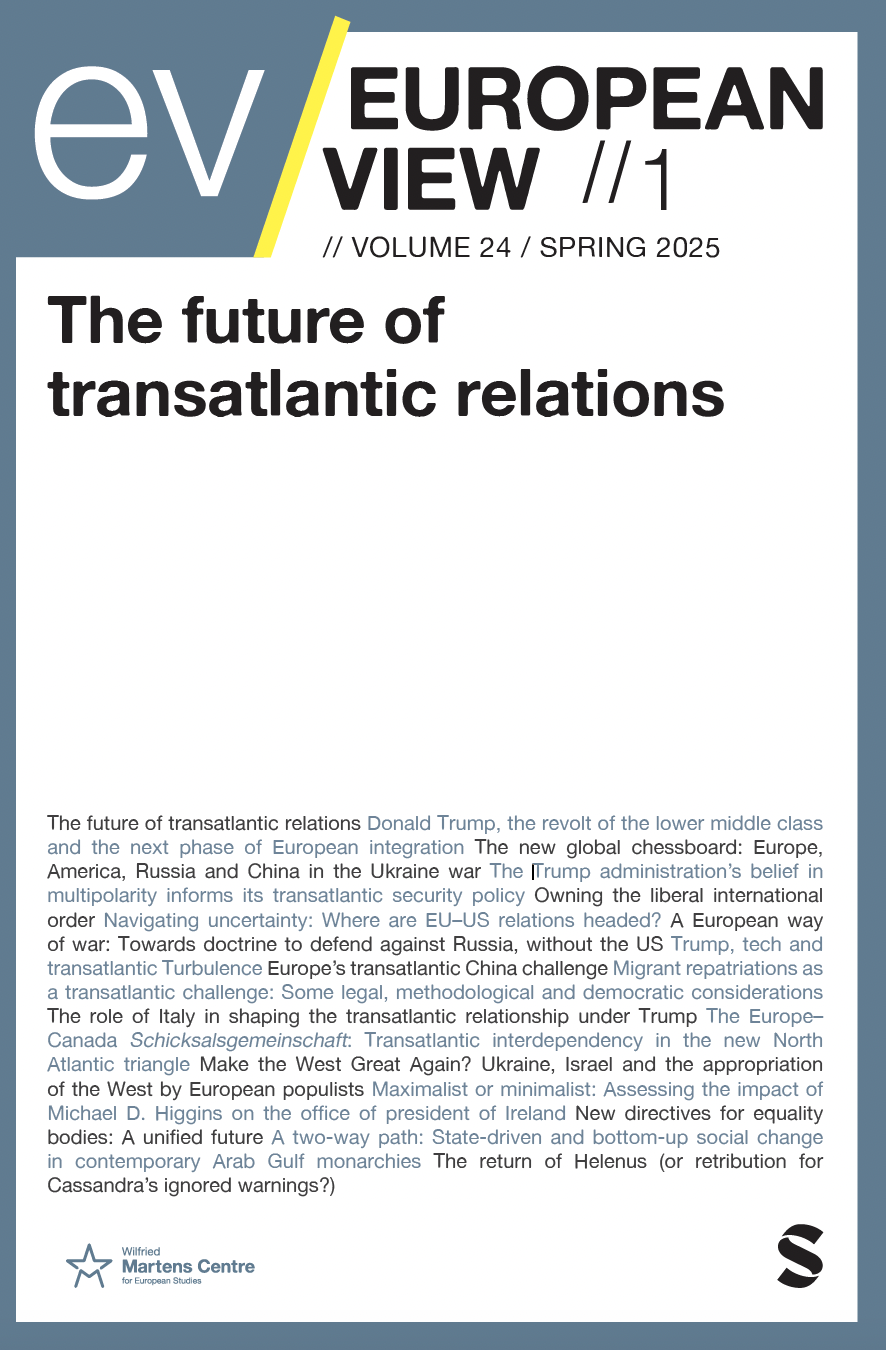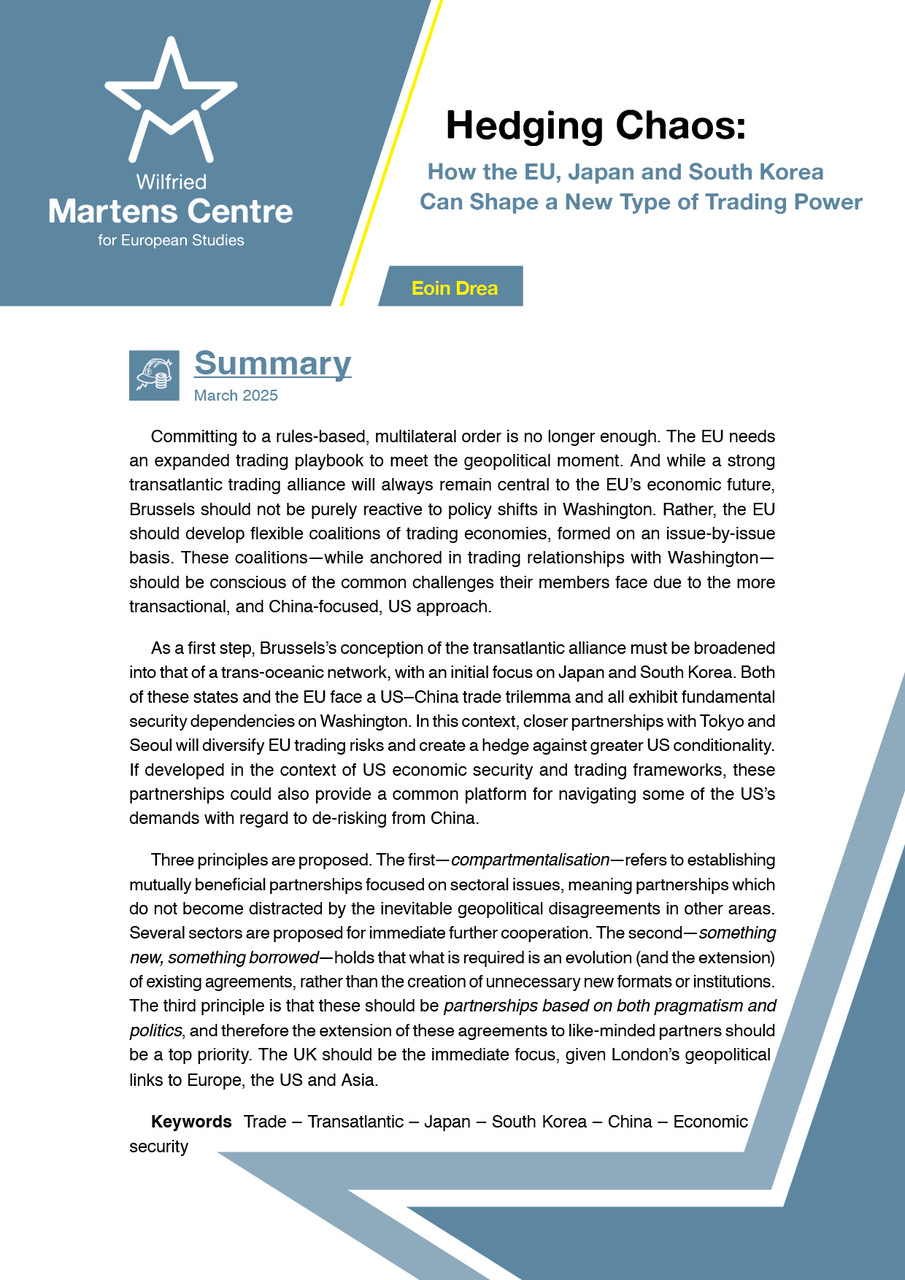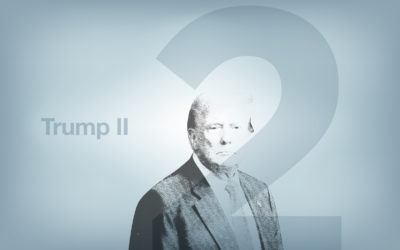Keep calm, trade fairly and tackle China
13 March 2018
If Europe’s punditry is to be believed, we’re in the middle of a trade war and the EU is under attack from Donald Trump who hates us for our trade surplus, our great automobiles and the European Social Model.
And indeed, a US President who defines trade in zero sum terms, where one side’s gain is the other side’s loss, is a problem. But before we go further in belligerent rhetoric and hit back hard with retaliatory measures, let’s stop and keep things in perspective.
First of all, Donald Trump is not the first American president to introduce trade tariffs. A recent example of a former US president attempting the same still resonates in everyone’s minds: Bush in 2002. At the time, the World Trade Organisation had deemed the new US tariffs on steel illegal, after complaints brought by the EU in March 2003.
Though we all hope that it will not come to that, the EU through Commissioner Malmström has already stated that it will not hesitate in once more engaging with the WTO to get the United States to back down on the tariffs.
Secondly, it’s worth reminding ourselves that steel and aluminium make up only 2 % of EU exports to the US, and that it’s a bit premature to speak of a trade war. This is even if, on 23 March, Trump’s punitive tariffs come into effect. The first consequence will be the even more acutely felt Chinese surplus on European markets.
This brings us to our third point: China. As China’s factories are usually state-owned and heavily subsidised, the country has been capable of keeping them open despite there being no global appetite for steel and aluminium. This has resulted in an excess capacity and, subsequently, the laying off of steel workers around the world, incapable of keeping up with the decrease in prices imposed by the Chinese factories.
It is Trump’s binary vision of international trade which has made him overlook how the trade tariffs, by not excluding the EU, will further affect the European continent as its markets will be flooded with Chinese metals. The latest developments on the part of the Trump administration demonstrate a positive twist: from further conversations on March 12, it appears the EU will be exempted from the tariffs on the condition that the EU is a reliable partner in fighting over-capacities.
That proves what has been clear all along: US and EU cooperating to fight China’s questionable trade practices has become an avenue out of the transatlantic trade crisis.
Fourthly, it is important to understand the very specific domestic circumstances in which Trump is beginning to apply ‘America First!’ to trade (which, next to migration and foreign entanglements, had been one of his three core campaign promises all along). The White House is in chaos and this week he hopes for a Republican victory in a by-election in Pennsylvania – in the heart of the Rust Belt in which steel production still plays a vital role.
US and EU cooperating to fight China’s questionable trade practices has become an avenue out of the transatlantic trade crisis.
Moreover, we should note how unpopular Trump’s trade rhetoric, and the announcements of new tariffs, are among Republicans (whereas they seem to go down well with the unions). While this doesn’t excuse what the President is doing, all of this is a strong indication that neither he nor the Republicans are ‘attacking the EU’ or the European Social Model.
Five, we might also be surprised at who, among Socialists and Greens, have recently become vocal advocates of global trade. At the peak of the anti-TTIP and anti-CETA campaigns, trade had become something of a taboo among these segments of the political sphere. It is refreshing to see them now condemning protectionism in such clear terms.
Ultimately, here is what Europeans should do: calmly engage with our American partners and have a frank discussion on bilateral as well as global trade; discuss how we can pressure China into being a fairer player on world markets, and resolve our bilateral problems on the way. If the US President is unhappy about the trade tariffs that the US and EU negotiated decades ago, let’s negotiate new ones.
This would, incidentally, bring us back to a transatlantic trade deal which would work even better if it included some regulatory convergence. Of course, we couldn’t call it TTIP. But we should use the momentum to take all those newfound friends of Transatlantic trade by their word, and strengthen the argument that if people sell and buy goods and services, we may discuss the parameters, but it’s first of all a good thing and a pillar of our civilisation.
ENJOYING THIS CONTENT?






















